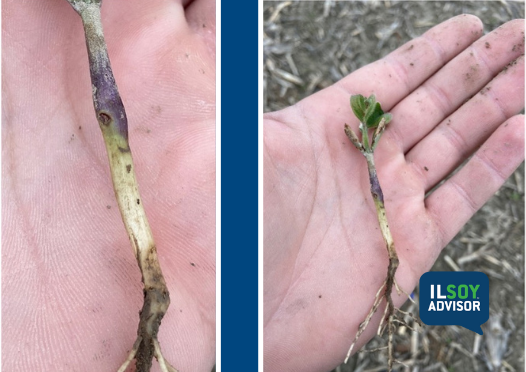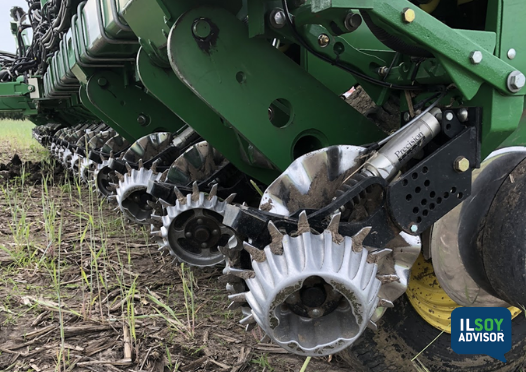ILSOYADVISOR POST
The Early Bird Plants Smartly
When planting soybeans, we ought to ask ourselves this question, “Is it all about calendar date to ensure that we take the best steps to maximize soybean yields?” My response to that question is, “maybe.” It is true that early planting can have a positive influence on final yield, and planting into soils and environments that allow for rapid germination, establishment and vigorous early vegetative growth can have a momentous bearing to that end.
But past planting seasons remind us that very early planting isn’t always possible or practical due to the whims of Mother Nature. Below are several factors leading to higher yields in early planted soybean acres, and tactics that may help avoid possible pitfalls should this advantageous opportunity arise.
Planting newer cultivars with the highest percent germination available early, while utilizing effective treatments on your most productive fields first, can maximize yield potential by:
- Capitalizing on emergence, stand count and advanced vegetative growth prior to flower initiation
- Increasing utilization of available sunlight and associated solar radiation percentage
- Improving weed suppression with early vigorous soybean growth and faster canopy closure
- Greatly extending flowering period, especially in newer genetics
- Increasing earlier planted beans ability to amplify reproductive axillary and node numbers, allowing for improved pod and seed set
- Protecting vegetative and reproductive gains with regularly scheduled scouting visits
- Planning application of herbicide, insecticide and fungicide treatments to enhance ROI
Recommendations when electing to plant soybean fields early, or anytime for that matter:
- Plant your highest quality seed in your most productive fields first
- Protect seeds with effective inoculant/fungicide/insecticide combinations
- Confirm adequate fertility is present or planned for. Include macro- and micronutrients on each field based on current soil test levels or appropriately timed tissue testing in season
- Evaluate the short-term weather forecast, weighing excessive risk of overly stressful environmental conditions including lengthy cold and/or overly wet conditions
- Plant into conditions that won’t discourage quick germination. Soils and conditions that allow for 6 to 36 hours of soil temperatures above 50° F will reduce imbibitional chilling effects on seed and aid in expedient germination, final stand count and early vigor
Planting early can be a substantial first step in maximizing yields in many years. But, planting conditions and soil temperature/rainfall after planting can often negate the effect that very early planting date offers. So, remember planting smartly with a plan is one sure way to ensure that those soybean plants get off to the start they need to flourish for the remainder of the season.
Happy and safe planting in 2018!!
Providing agronomic support and education to sales staff across all crops and geographies in the Dairyland Seed® footprint, Moran also has specific duties for managing Dairyland’s soybean portfolio. He joined Dairyland in June of 2004, serving as a District Sales Manager in Central/Southern Ill. and transitioning into his current role as Product Agronomy Specialist in 2010. Previously, he worked within the GROWMARK™ system for 16 years in various roles and locations. Professional agricultural accreditations include his CCA in 2001 and CPAg in 2012. He also proudly served as a Combat Engineer assigned to FORSCOM in the United States Army. He holds undergraduate degrees in Earth Science and Agronomy, as well as an M.S. in Crop Sciences, from the University of Illinois, Urbana-Champaign.





Comments
Add new comment